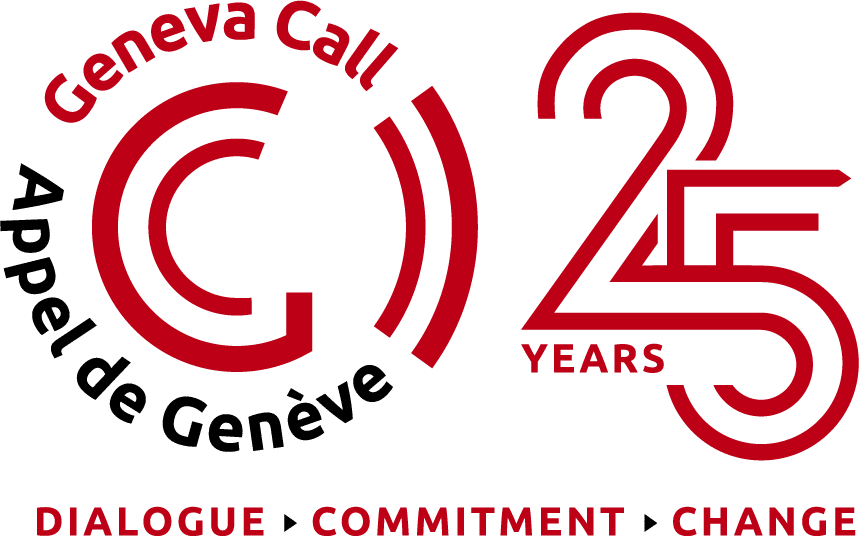Burmese rebel groups commit to ban anti-personnel (AP) landmines
5 December 2003
Burmese Rebel Groups Commit to Ban Anti-personnel (AP) Landmines.
New Success for Geneva Call
Geneva – 5 December 2003
Today Geneva Call announced an agreement by the Arakan Rohingya National Organization (ARNO) and the National United Party of Arakan (NUPA) to ban all use of anti-personnel mines and victim activated explosive devices. Both groups recently signed the Geneva Call Deed of Commitment for Adherence to a Total Ban on anti-personnel Mines and for Cooperation in Mine Action (DoC).
“There are many tragedies suffered by the Burmese people,” said Khin Muang, President of the NUPA. “We are convinced of the importance to end all use of AP mines.” ARNO President Nurul Islam said that although the Burmese military continues mine use, the damage caused to civilians demands both ARNO & NUPA stop. “Many people have been killed and injured as a result of these mines,” he said. “The mined areas are not marked and most victims have no access to treatment or assistance.”
Myanmar’s ruling State Peace and Development Council (SPDC) has not joined the international treaty banning AP mine use. An annual report detailing landmine policies and mine contamination worldwide, estimates 15 armed groups within Burma used AP mines or improvised explosive devices (IEDs) in the 14-month period between June 2002 and August 2003. The 2003 Landmine Monitor, reports at least 114 new casualites in 2002 and more incidents in the first half of 2003. While the numbers of mine victims appear to have increased over the last several years, the total number of casualties in Burma is unknown.
Under the Deed of Commitment, signatories commit to a ban of AP mines and/or victim-activated explosive devices under any circumstance and prohibitions on transfer, stockpiling and production; they agree to facilitate humanitarian mine action programmes in areas under their control, including stockpile destruction, mine clearance and marking and those providing assistance to mine victims. Signatories are obliged to ensure all soldiers under their command are aware of the prohibitions, to cooperate in efforts to monitor implementation of their obligations and to promote the mine ban with other armed groups in the region.
“We view this as a first step to engaging armed groups in Burma,” said Geneva Call President Elisabeth Reusse-Decrey. Large numbers of armed groups use mines and IEDs throughout South East Asia. Geneva Call and local partners work to engage armed groups in Nepal, North East India, the Philippines and Sri Lanka in the mine ban norm. Geneva Call supports efforts to launch humanitarian mine action programmes in areas where armed groups have signed the Deed of Commitmentand assists with implementation of their commitments under it.
Both ARNO and NUPA are from Arakan State in Burma, populated by two main ethnic groups – the Rakhaing, who are predominantly Buddhist, and the largely Muslim Rohingya. In October 2000, NUPA, the largest Rakhaing insurgency group, and ARNO, representing the Rohingya/Burmese Muslims, joined forces under the Arakan Independence Alliance (AIA). Both groups operate along Burma’s western border with Bangladesh.
Geneva Call is an international humanitarian organisation dedicated to engaging non-State armed groups in respecting humanitarian norms, such as the anti-personnel mine ban. To date, 24 groups in the Philippines, Sudan, Iraq, Somalia, Burma and India have agreed to ban AP mines under the Deed of Commitment.
For information:
Elisabeth Reusse-Decrey, President or Katherine Kramer, Programme Director
